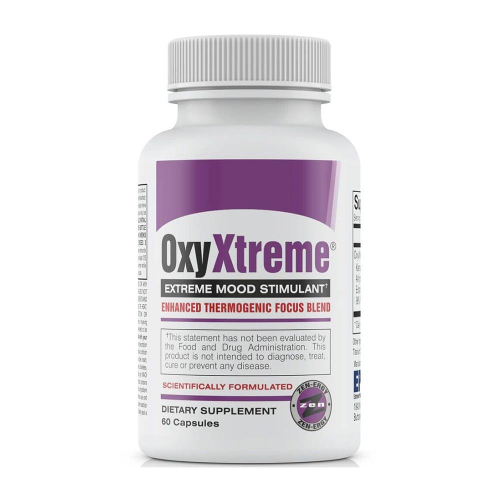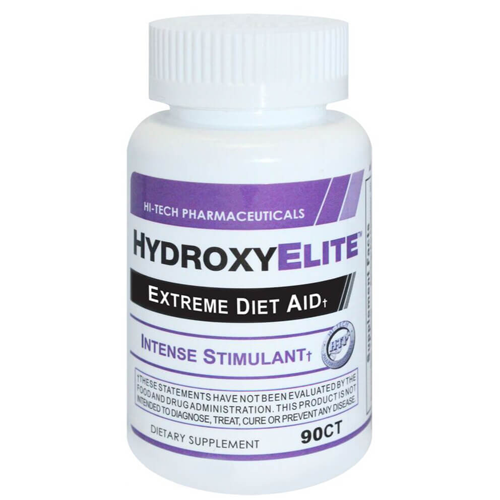Welcome to our comprehensive exploration of weight loss supplements research. In the journey to achieve a healthier body, many of us are inundated with options ranging from diet plans to diet pills study efforts, all promising the allure of effortless weight reduction. Amid the bustling market of dietary supplements for weight loss, the glaring question of whether these products truly deliver on their promises looms large. As someone deeply invested in this field, I recognize the importance of clinical evidence when evaluating the efficacy and safety of these supplements.
In this article, we will scrutinize the available clinical trials and scientific scrutiny applied to key weight loss supplements, aiming to separate fact from fiction. The FDA plays a pivotal role in regulating dietary supplements, ensuring they’re free from harmful contaminants and accurately labeled; however, its scope doesn’t extend to guaranteeing their effectiveness or mitigating all risks. Indeed, most of these supplements emerge into the market with scant scientific backing, their long-term effects still shrouded in uncertainty.
I urge our readers to approach dietary supplements for weight loss with a critical eye, armed with information sourced from credible scientific data and professional healthcare consultations. This article will provide valuable insights for everyone, particularly pregnant or breastfeeding women, individuals with underlying health conditions, and those on prescription medications, leading you to make informed decisions. So, as we embark on this in-depth review of weight loss supplements research, keep in mind that knowledge is power, and in the ever-evolving landscape of dietary supplements, staying informed is key to your wellbeing.

Understanding Weight Loss Supplements
As we delve deeper into our examination of weight loss supplements research, it’s crucial to understand these dietary aids’ framework before considering their integration into a wellness regime. Often perceived as a shortcut to shedding unwanted pounds, the allure of weight loss supplements is undeniable. However, I’ve found it necessary to temper such enthusiasm with a dose of reality regarding their safety, effectiveness, and regulation—or lack thereof.
First and foremost, unlike prescription drugs that undergo rigorous testing and FDA approval before hitting the market, these dietary supplements for weight loss are not held to the same standard. According to current regulations, the responsibility of safety and labeling truthfulness rests on the manufacturers, leaving consumers to navigate a minefield of unsubstantiated claims. In my continued exploration into their clinical evidence, several common ingredients frequently crop up in these products:
- Chromium Picolinate: Although some diet pills study literature mentions this compound’s supposed role in enhancing weight loss, clinical trials have yet to corroborate these claims convincingly. Not to mention, the possible side effects like insomnia and kidney damage raise red flags for its use.
- Conjugated Linoleic Acid (CLA): This ingredient shows a glimmer of promise for reducing body fat. Still, the trade-off might include a heightened risk of insulin resistance—a serious consideration for those prone to heart complications.
- Glucomannan: Sourced from the konjac plant, this fiber is another favorite among supplement labels, claiming to promote satiety and weight loss. Nevertheless, my investigation into clinical trials reveals that evidence is insufficient, and concerns about its interaction with other medications linger.
- Ephedra and Bitter Orange: In weight loss supplements research history, ephedra is notorious for being banned due to severe health risks. Similarly, bitter orange raises safety concerns, particularly when combined with stimulants like caffeine.
Weight Loss Research
Given these insights, I encourage readers to consider their options holistically. Data suggest that approximately 15% of adults in the U.S. have tried these dietary supplements for weight loss, investing collectively around $2.1 billion annually. This staggering figure prompts a pressing question: are these supplements truly worth their cost and potential risk?
While some individuals report positive experiences, the journey to weight loss is seldom a one-size-fits-all scenario. It is imperative to conduct thorough research and ideally engage in a dialogue with healthcare providers before introducing any form of supplementation to your regimen. The most effective strategy, supported by years of clinical evidence, remains a steadfast commitment to lifestyle changes, including a balanced diet and regular exercise—principles championed by plans like the Mayo Clinic Diet.
As we proceed in our series, I’ll unpack the nuanced interactions of these supplements, aiming to provide you with a clear and truthful depiction informed by the latest weight loss supplements research. Keep in mind that while the pursuit of health is a valiant one, it should never compromise safety, nor should it eclipse the importance of foundational lifestyle habits that sustain long-term wellbeing.
27mg Ephedra Fat Burner

The complete fat burner with Green Stinger. An intense ephedra fat burner designed for those that need to deliver max metabolic energy and lose stubborn fat.
Scientific Research on Key Supplements
Delving into the clinical evidence, weight loss supplements research often presents a mixed bag of results, leaving consumers grappling with uncertainty concerning the veracity of bold claims made by manufacturers. Based on my thorough evaluation of scientific studies, it appears that while certain supplements might offer a boost in weight loss efforts, they are not silver bullets and should be viewed as adjuncts to a comprehensive weight management strategy.
One area that has garnered considerable attention in clinical trials is the role of specific supplements in enhancing weight loss outcomes. For example, studies have shown that green tea extract, known for its metabolism-boosting catechins, can contribute to modest weight loss when paired with a reduced-calorie diet. I’ve come across research indicating an average loss of 3-4 pounds over several months. Similarly, dietary fibers and supplements containing low-fat dairy have shown positive, albeit modest, effects on body weight, suggesting that they can be a helpful part of a broader dietary strategy.
However, it’s critical to note that exercise remains paramount in the equation for sustainable weight management. Clinical trials overwhelmingly support the notion that no supplement can replace the benefits of physical activity, both for initial weight loss and importantly, for maintaining muscle mass and preventing weight regain. I find it concerning that most weight loss supplements research overlooks the crucial role of exercise, and thus, their study outcomes may not reflect a real-world scenario where diet and physical activity interplay.
Lipodrene vs Green Stinger

Discover the similarities, differences, and effectiveness of these fat burners in our comprehensive analysis.
Healthy Weight Loss
On the other hand, certain vitamins and nutrients have also demonstrated their support for healthy weight loss in synergy with lifestyle modifications. An increase in protein, fiber, calcium intake, and yes, even that soothing cup of green tea, can indeed aid in the weight loss process. Through my lens, these components should not be viewed as standalone solutions but rather as part of a tapestry of healthy diet choices that can contribute to weight loss.
In more recent developments, experimental drugs such as Eli Lilly’s retatrutide have made headlines in weight loss supplements research. But while some initial findings are promising, showing notable weight losses of over 24% of body weight within a 48-week span, it’s imperative to approach these results with caution due to potential side effects similar to those seen with rapid weight loss from bariatric surgery.
In summary, while the promise of effortless weight loss via supplements remains an alluring prospect, the reality is nuanced. A discerning look at clinical evidence suggests that although supplements can play a role in weight management, they are but one piece of a larger puzzle that includes diet, exercise, and overall lifestyle changes. As we navigate through the myriad of dietary supplements for weight loss, it becomes increasingly clear that the key to their effective use lies in a balanced approach underscored by both scientific scrutiny and practical considerations of a healthy lifestyle.
The Role of the FDA in Supplement Regulation
As we peel back the layers of weight loss supplements research, one cannot overlook the integral role that the U.S. Food and Drug Administration (FDA) plays in the oversight of these products. I feel it’s important for our readers to understand the extent—and limits—of FDA regulation in the context of dietary supplements aimed at weight loss.
The FDA indeed regulates dietary supplements, including those marketed for weight loss. However, the regulatory framework differs significantly from that of prescription drugs. For starters, these products do not undergo premarket review or approval. This means that it is the supplement manufacturers who must ensure their products are safe and that their label claims are honest and non-deceptive. The keyword here is ‘manufacturer responsibility’, a point of contention that often leaves us, the consumers, questioning the reliability of the products on the shelves.
That said, the FDA isn’t entirely hands-off in this industry. If a product is found to be unsafe or if a manufacturer is caught making unsupported weight-loss claims, enforcement action can be taken, which may result in the product being pulled from the market. It’s crucial to note that dietary supplements shouldn’t contain pharmaceutical ingredients, nor should they claim to diagnose, treat, cure, or prevent any disease. Misleading claims and the incorporation of unauthorized substances can lead to hefty penalties under FDA regulations.
Buy Ephedra Fat Burner

Looking to lose weight fast? Yellow Bullet Xtreme is the answer. This powerful ephedra fat burner with extreme energy is designed for maximum results.
Clinical Safety and Efficacy
The challenge, from what my immersion in clinical evidence has shown, lies in the verification of the safety and efficacy of the ingredients within these weight loss supplements. The uncertainty only mounts when these ingredients are mixed with other compounds within a product. For instance, clinical trials often do not cover the myriad of combinations found in over-the-counter supplements, leaving a gap in our understanding. Additionally, these weight loss solutions can be costly, and the potential for interactions with other medications cannot be overstated.
Through my conversations with healthcare practitioners, it has become evident that less than one-third of adults in the U.S. discuss their use of dietary supplements for weight loss with a professional. This lack of dialogue is concerning as it opens up risks, particularly for individuals with health conditions like high blood pressure, diabetes, and heart or liver diseases. The weight loss supplements research supports a unanimous view among health experts that lifestyle modifications, including diet and physical activity, remain the foundation for achieving long-term weight loss.
In sum, while the FDA provides a critical safety net against harmful products, the responsibility for judicious use of weight loss supplements ultimately falls on us, the consumers. We must navigate this landscape with informed caution, seeking the advice of healthcare providers, and recognizing that no supplement replaces the cornerstone habits of a healthy dietary pattern and regular exercise. In our quest for wellness, leveraging clinical trials and clinical evidence to make conscious choices is essential, and understanding the FDA’s role in supplement regulation is part of that journey.
Potential Benefits of Weight Loss Supplements
In the nuanced landscape of weight loss supplements research, examining the potential benefits of these popular aids is a topic I find crucial to explore. My quest for a deeper understanding has uncovered how some individuals might find these dietary supplements beneficial in their weight loss journey.
Many turn to these products seeking a boost or jump-start in their diet, with supplements offering various ingredients aimed at increasing metabolism and energy levels. A common thread in the clinical trials examining weight-loss aids is the presence of ingredients that could potentially assist with appetite suppression and calorie burning:
- Appetite Suppression: Ingredients like glucomannan and guar gum are known to expand in the stomach, helping to increase feelings of fullness and delay gastric emptying, which in turn may lead to a reduction in overall calorie intake.
- Metabolic Enhancers: Compounds such as caffeine and green tea extract have been shown to potentially increase metabolic rate, thus aiding in calorie burning. These findings can be particularly promising for those struggling to lose weight through diet and exercise alone.
Nirvana Mood Boost

Elevate your spirits with Nirvana Boost Mood Pills! Our 800mg proprietary blend includes Phenibut, Alpha GPC, L-Theanine, and caffeine, providing up to 10 hours of zen-like energy without crashes.
Weight Management and Dietary Supplements
Beyond assisting with weight management, some dietary supplements for weight loss carry additional health benefits. In my review of the clinical evidence, I have encountered studies indicating potential improvements in health markers due to weight loss supplement ingredients:
- Lipid Profile Improvement: Substances such as glucomannan, when ingested as part of a sustained health regime, may help to lower cholesterol, LDL (low-density lipoprotein), and triglycerides.
- Blood Sugar Regulation: Ingredients like chromium are hypothesized to contribute to improved insulin sensitivity, which is crucial for those with insulin resistance or type 2 diabetes.
Weight Loss Supplement Research
In my ongoing assessment of these products, the weight loss supplements research consistently mentions ingredients that are common fixtures in many formulations due to their potential benefits, including:
- Green Coffee Bean Extract: Rich in chlorogenic acids, this supplement is believed to affect glucose and fat metabolism.
- Beta-Glucans: Found in foods like oats and barley, they contribute to satiety, potentially aiding in weight management.
- Vitamin D: Low levels have been associated with higher fat accumulation, suggesting its supplementation could support weight loss.
However, optimism about these benefits needs to be tempered with a clear understanding of the potential drawbacks and adverse health implications. Clinical trials warn of the risks of side effects and interactions with medications, highlighting the need for medical consultation before commencing any supplement regimen. The lack of FDA approval in the realm of supplements insists upon vigilance and conscientious decision-making.
I stress that a thorough evaluation of clinical evidence and a candid discussion with healthcare providers are steps we must not skip when considering weight loss supplements. The promising aspects should never overshadow the essential elements of diet and exercise or potentially adverse side effects. As we sift through the myriad of options, an informed approach based on solid weight loss supplements research remains our best guide toward achieving sustainable health goals.
Risks and Side Effects
While the potential benefits of dietary supplements for weight loss might pique the interest of many, it’s my duty as an advocate for informed decision-making to shed light on the less talked about, yet equally crucial, aspect of these products—the risks and side effects. Despite the promise of shedding extra pounds, unsound weight loss supplements research often fails to highlight the gamble consumers take when using these products without adequate clinical evidence backing their safety. My examination into clinical trials and scientific literature has unveiled a myriad of side effects associated with various diet pills and supplements, reinforcing the mantra that there are no shortcuts to health.
First and foremost, stimulant-based supplements, which are often touted for their ‘fat-burning’ capabilities, can lead to a litany of adverse effects. Such supplements might escalate blood pressure and heart rate, potentially causing insomnia and nervousness, along with blurred vision and restlessness. Those particularly sensitive could experience headaches or gastrointestinal issues such as constipation and nausea. In more severe cases, I’ve stumbled upon findings that point to life-threatening conditions including heart attacks, strokes, and organ failure, particularly when these pills are misused or abused. Given the gravity of these findings, my research underscores the importance of caution when considering such diet pills.
In the realm of fat absorption inhibitors, commonly known as lipase inhibitors, the side effects can be uncomfortably blatant. These inhibitors come with their own catalog of gastrointestinal issues. From oily spotting and unyielding gas to unpredictable stools, the experience can be nothing short of distressing. Taking a deep dive into past clinical trials, I was dismayed to find associations with serious liver injury, calling into question the trust we place in such dietary supplements for weight loss.
Discontinued Products
Perhaps the most sobering discovery in my journey through weight loss supplements research is the history of certain products being discontinued due to severe side effects. For instance, Fenfluramine, part of the notorious Fen-Phen combination, was linked to heart valve issues, while Sibutramine was taken off the market due to an increased risk of heart attack and stroke. More recently, Lorcaserin was withdrawn due to cancer risks. Such instances serve as powerful reminders of the intrinsic risks involved and emphasize the indispensable need for rigorous clinical evidence before embracing any diet pills study that advocates quick fixes.
Presenting these findings, my hope is not to alarm but to inform. Through a comprehensive understanding of both the potential rewards and risks, we are better equipped to make choices that serve our long-term health and wellness. As advocates for responsible use of supplements, we must demand stringent clinical trials and remain vigilant about the latest scientific advances in the field of dietary supplements for weight loss. Our health is a precious commodity, and it should never be risked on unproven or unsafe weight management solutions.
Comparing Supplements with Diet and Exercise
Stepping into the arena of comparison between dietary supplements for weight loss and the tried-and-true pillars of diet and exercise, I find myself reflecting on a fundamental truth: no pill can outperform the holistic benefits of lifestyle modification. The weight loss supplements research suggests these products can offer a supplementary boost at best and incur unwarranted risks at worst. Let’s take a moment to juxtapose these approaches:
- Sustainability: Clinical trials reveal that healthy lifestyle interventions, encompassing nutritious dieting and consistent physical activity, have been proven to lead to long-term weight management success. This contrasts with the temporary nature of results commonly associated with weight loss supplements.
- Health Benefits Beyond Weight Loss: A balanced diet and regular exercise are known to improve cardiovascular health, enhance mental well-being, and promote stronger bones and muscles, benefits rarely derived from dietary supplements.
Clinical Trials and Dietary Supplements
In my evaluation of the evidence, it’s important to point out specific components that are often at the heart of clinical trials scrutinizing dietary supplements for weight loss:
- Probiotics and Fiber: Although supplements containing these ingredients can contribute to a minor reduction in body weight, they cannot replicate the array of benefits provided by a diet rich in fruits, vegetables, and whole grains.
- Vitamin D and Calcium: While the clinical evidence supports their supplementation in some weight loss contexts, they are most efficacious when obtained from a well-balanced diet. No supplement can fully replace the nutritional complexity found in natural sources.
As an advocate for research-informed choices, I’ve observed critical issues within the realm of diet pills study literature that must be addressed:
- Lack of Regulation: Supplements are not as tightly regulated as pharmaceuticals, which can lead to doubts over their claims.
- Questionable Efficacy: Many supplements have yet to be convincingly proven effective for weight loss in robust clinical trials.
- Nutritional Synergy: The interplay of various nutrients within a diet, a phenomenon that supports metabolic health and weight loss, is often missing from the singular nutrient approach of supplements.
In conclusion, through the lens of weight loss supplements research, it becomes evident that while some individual nutrients and dietary supplements have roles to play, their impacts pale when weighed against the comprehensive benefits of a well-rounded diet coupled with exercise. As we continue to chase after the allure of a quick fix in a pill, let us not forget the proven efficacy and far-reaching benefits of embracing a healthy lifestyle. Before embarking on a supplement regimen, I encourage readers to consider clinical evidence, consult with a healthcare provider, and reflect on the considerable virtues of diet and exercise as the cornerstone of healthy living.
Buy Best DMAA Alternative

Packed with PEA alkaloids, this extract boosts your metabolism, helping you burn calories and shed those extra pounds. Unlock the secret to weight loss with this unique ingredient.
Guidelines for Choosing and Using Supplements Safely
Navigating the realm of dietary supplements for weight loss with a safety-first approach is something I stress heavily. In our continuous review of weight loss supplements research, here are critical guidelines to ensure you are making sound choices and minimizing any potential risks when exploring these supplements:
- Consult with Healthcare Providers: This cannot be emphasized enough. Always speak with a healthcare professional before starting on any supplement, especially if you have pre-existing health conditions, are pregnant or breastfeeding, or are under prescription medication. It’s important that this step isn’t skipped; healthcare providers can offer personalized advice based on your health history and current medications.
- Research and Verification: As we’ve seen in the diet pills study forums, companies are tasked with ensuring their products are safe, yet some fail to do so. Before making a purchase, check credible websites for clinical evidence supporting the product’s claims. The FDA, NIH’s Office of Dietary Supplements, and the National Center for Complementary and Integrative Health are reputable sources. Additionally, the Council for Responsible Nutrition’s Supplement OWL (Online Wellness Library) can be a tool for researching products and the companies behind them.
- Recognize and Avoid False Claims: Be wary of products marketing themselves with drug-like promises or guaranteeing quick fixes. These could potentially be spiked with harmful or illegal substances. Recognizing these red flags is a crucial step learnt through thorough weight loss supplements research. Trustworthy products do not typically feature outrageous guarantees or claims.
Adding Supplements to Health Regimen
When adding dietary supplements to your health regimen, it’s also sensible to look for several quality assurances:
- Trustworthy Brands and Retailers: Choose well-known national brands or store brands from respected retailers, as they often have more significant investments in quality assurance processes.
- Third-Party Certification: Look for quality seals or certifications from NSF International, UL, USP, Informed Choice, or Banned Substances Control Group, which indicate the products have been independently tested for quality and purity.
- Realistic Expectations: Weight loss supplements research consistently shows that supplements work best when combined with lifestyle changes such as a healthy, reduced-calorie diet and increased physical activity. Supplements alone are never the sole solution for weight loss.
Lastly, keep in mind that many weight loss supplements are costly, and some of them contain ingredients that might interact with certain medications or be harmful to people with specific health conditions. It’s paramount to consider clinical trials findings and all clinical evidence before choosing a dietary supplement for weight loss. And remember, the supplements to consider for aiding in healthy weight loss, as supported by some clinical evidence, include multivitamins, magnesium, B vitamins, protein powder, and fiber. These support a holistic health approach and are designed to complement a lifestyle that includes a balanced diet and exercise for healthy weight loss.
By keeping these guidelines at the forefront of our minds, we can navigate the landscape of dietary supplements for weight loss safely and effectively. Let’s continue our quest for health with informed decisions grounded in the latest weight loss supplements research, assuring our choices lead to improved wellbeing without compromising safety.
Efficacy of Dietary Supplements for Weight Loss
A recent systematic review and meta-analysis has shed light on the efficacy of dietary supplements containing isolated organic compounds for weight loss. This comprehensive study, which analyzed data from 67 randomized placebo-controlled trials, offers valuable insights for individuals seeking effective weight management solutions.
The research focused on several popular dietary supplements, including chitosan, glucomannan, conjugated linoleic acid, and fructans. While some compounds showed statistically significant weight differences compared to placebo, none met the threshold for clinical significance (defined as ≥2.5 kg weight loss). Specifically:
- Chitosan resulted in a weight difference of -1.84 kg
- Glucomannan showed a -1.27 kg difference
- Conjugated linoleic acid demonstrated a -1.08 kg difference
Interestingly, fructans showed no statistically significant effect on weight compared to placebo.
The study also identified some promising results for other compounds, albeit with limited evidence. Modified cellulose, manno-oligosaccharides (in males), blood orange juice extract, and three multiple-ingredient dietary supplements showed statistically and borderline clinically significant weight differences. However, these findings were based on single trials, emphasizing the need for further research before recommending them for weight loss.
For the general public interested in weight loss, these findings underscore the importance of approaching dietary supplements with caution. While some compounds may offer modest weight loss benefits, the current evidence does not support their use as standalone solutions for significant weight reduction. It’s crucial to remember that sustainable weight loss typically involves a combination of balanced nutrition, regular physical activity, and lifestyle modifications.
In conclusion, while certain dietary supplements containing isolated organic compounds warrant further investigation, there is currently insufficient evidence to recommend any of these supplements as effective weight loss aids. Individuals considering such supplements should consult with healthcare professionals and focus on evidence-based approaches to weight management
Conclusion
In conclusion, our thorough exploration of weight loss supplements research reveals the complexity surrounding these products. While certain supplements may offer marginal benefits within a comprehensive weight management strategy, they cannot replace the foundational and sustainable practices of a balanced diet and regular exercise. Moreover, the importance of careful consideration cannot be overstressed—engaging with healthcare professionals, understanding FDA regulations, and maintaining realistic expectations are critical elements in ensuring a safe and informed approach to using these aids.
Ultimately, the journey toward effective weight management is a nuanced one where knowledge truly is power. The weight loss industry is fraught with lofty promises, but armed with credible scientific evidence and a discerning eye, we can make choices that harmonize with our health goals. As we consider the application of weight loss supplements, let’s remember to prioritize our long-term well-being over quick, potentially risky solutions—highlighting the enduring significance of lifestyle changes supported by data and healthcare expertise.
FAQs
Throughout this article, we’ve unraveled the complexities of weight loss supplements research to empower you with knowledge. As we’ve sifted through clinical evidence and evaluated the effectiveness and safety of dietary supplements for weight loss, some recurring questions have emerged. Let me address these FAQs to further clarify and guide you on this journey:
- Are weight loss supplements regulated the same way as medicines? No, while dietary supplements, including those for weight loss, are overseen by the FDA, they do not require FDA approval like medicines do. Clinical trials conducted by manufacturers are often not as thorough or stringent as those required for pharmaceuticals. Consequently, the FDA can only intervene if false or unsupported claims are made or if a supplement proves to be unsafe after it has reached consumers.
- Can weight loss supplements cause harm? Absolutely. Some dietary supplements have been associated with significant health issues. For instance, the FDA has banned ephedra due to its connection to severe side effects. It serves as a potent reminder that even natural or herbal supplements can prove dangerous, and underscores why we must rely on clinical evidence rather than anecdotal success stories.
Essential Points
Here are some essential points to keep in mind:
- Categories: Weight loss supplements can be classified into dietary supplements and nonprescription drugs. Dietary supplements range from St. John’s wort to various vitamins and minerals, while nonprescription drugs, which have gone through clinical trials, include products like Orlistat.
- Risk for Certain Groups: If you have diabetes, high blood pressure, or other health conditions, these supplements can be particularly hazardous, especially when taken alongside other medications.
- FDA Approved Drugs vs. OTC: It is vital to know that over-the-counter (OTC) weight loss supplements are not the same as FDA-approved weight loss drugs, and none of the former have obtained such approval.
- Common Ingredients: Frequently found ingredients in weight loss supplements include caffeine and various vitamins and minerals, which may be safe individually but have not been proven effective for weight loss when combined in supplements.
- Hidden Ingredients: Dietary supplements sometimes contain ingredients not listed on the label, which may interact with other medications. Always consult a healthcare provider before using these products.
- Healthy Lifestyle For Weight Loss: The most effective method for losing weight and keeping it off is a combination of healthy eating and regular exercise, as per clinical trials and recommendations by healthcare professionals.
- Interactions and Reactions: Should you have an adverse reaction to a dietary supplement, contact emergency services or poison control immediately for assistance.
- Doctor Consultation: Prior to starting any supplement, a consultation with a healthcare provider is crucial. This ensures that you choose a supplement based on sound weight loss supplements research and not simply marketing hype.
Remember, the best weapon in our weight loss arsenal is adopting a healthy, well-rounded lifestyle that includes a targeted diet and regular physical activity. This approach not only aids in weight loss but also boosts your mood, energy level, and overall health profile, reducing the risk of chronic diseases. Our body’s well-being is the most valuable asset we possess—protect it by making informed choices based on robust weight loss supplements research, sound clinical evidence, and prudent diet pills study. Let this journey of understanding efficacy be guided by science and the quest for long-term health.
References
Bailey RL, Gahche JJ, Miller PE, Thomas PR, Dwyer JT. Why US Adults Use Dietary Supplements. JAMA Intern Med. 2013;173(5):355–361. doi:10.1001/jamainternmed.2013.2299
Lenz TL, Hamilton WR. Supplemental products used for weight loss. J Am Pharm Assoc (2003). 2004 Jan-Feb;44(1):59-67; quiz 67-8. doi: 10.1331/154434504322713246. PMID: 14965155.
Katie J. Astell, Michael L. Mathai, Xiao Q. Su, Plant extracts with appetite suppressing properties for body weight control: A systematic review of double blind randomized controlled clinical trials, Complementary Therapies in Medicine, Volume 21, Issue 4,
2013, Pages 407-416, ISSN 0965-2299, https://doi.org/10.1016/j.ctim.2013.05.007
Ríos-Hoyo, A., Gutiérrez-Salmeán, G. New Dietary Supplements for Obesity: What We Currently Know. Curr Obes Rep 5, 262–270 (2016). https://doi.org/10.1007/s13679-016-0214-y
Ngondi, J.L., Etoundi, B.C., Nyangono, C.B. et al. IGOB131, a novel seed extract of the West African plant Irvingia gabonensis, significantly reduces body weight and improves metabolic parameters in overweight humans in a randomized double-blind placebo controlled investigation. Lipids Health Dis 8, 7 (2009). https://doi.org/10.1186/1476-511X-8-7
Bessell, E., Maunder, A., Lauche, R. et al. Efficacy of dietary supplements containing isolated organic compounds for weight loss: a systematic review and meta-analysis of randomised placebo-controlled trials. Int J Obes 45, 1631–1643 (2021). https://doi.org/10.1038/s41366-021-00839-w





